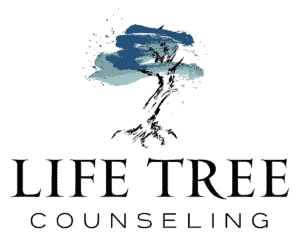“What’s Happening in There, Anyway?”
In our office, many parents of our child patients often ask us: “What exactly is it that happens in play therapy? It just looks like you guys are playing, to me.” Naturally, playing is the essence of play therapy, but there is a lot more going on behind the scenes than most adults realize.
For children, the counseling process involves many of the same attributes that are present during the therapy process for adults. There is, however, one crucial difference in play therapy – age-appropriate connection. This means that the therapist meets the child in his form of communication: the world of play.
Adults communicate their difficulties and successes by articulating their feelings and explaining their behaviors. Children, on the other hand, are not yet equipped to fully verbalize what they need to, due to their cognitive development not being adequately formed. Instead, children naturally gravitate to play in order to communicate their feelings. The play therapy modality of care provides the best environment for therapists to help children who are in distress.
Children don’t typically or clearly describe what is bothering them… they show their thoughts and feelings through play. Their world of “telling” or “describing” is by playing it out, mimicking scenarios and desires through surrogate objects that are familiar to them. The play therapy room is filled with a wide assortment of toys, games, puppets, legos, and various types of art modalities to ensure the child has the “tools” they need to make contact with the therapist. The easiest way to understand this cycle as it relates to adult communication is to think of toys as being the “words” and the play itself representing “thoughts and feelings.”
The Guidelines of Play Therapy
1. Goals in therapy for your child should not be confused with expectations.
Expectations can often sabotage the very essence of what play therapy was designed to do: meet the child “where he is.” The therapist will meet him and proceed at his pace.
2. Typically, the initial visit with the parents is important and sets the cornerstone for the treatment plan. It is very helpful for the therapist to obtain as much information during this session: presenting issues, concerns, academic trends, and other relevant history. We do require any custody/divorce decrees on the first session as per our licensing board’s requirement to do so.
3. The play therapy involves the therapist watching for themes and patterns. These signs tell the therapist what the child is concerned about, and help define the feelings that are associated with the theme.
4. The basic progression and stages of the therapy are:
- The ability to establish and maintain contact (engagement)
- For the child to be aware of all sensory modalities
- Appropriate self expression
- Appropriate emotional expression
- Self nurturing and finally
- Termination (ending the sessions)
5. The therapist will not expect the child to be “more than he is” at each session. This lack of expectations allows for a healthy client-therapist relationship to occur. If the child is having a bad day, the therapist “meets him there” by letting him set the tone and pace of the session, without prompting or guiding him away from his current mood.
6. At the end of the session, it is best to refrain from quizzing your child about what happened in the play therapy session, or if he had “fun.” This restraint encourages appropriate modeling and promotion of confidentiality, a sense of autonomy, and healthy boundary-setting within the family. If he wants to share, you will know – just listen!
Healing Themselves
Children have the potential to learn self control, self reliance, the ability to embrace their feelings and thoughts in a safe environment. They can also enhance their own creativity and resourcefulness when dealing with problems, eventually making better coping choices without direct assistance.
Make no mistake about it, even at a young age children have the capacity to resolve the things that cause conflict or hurt their feelings. The play therapy medium simply makes a difference in how they look at their world, and how they cope with the things they cannot control. If your child is struggling or emotionally troubled, play therapy can be the bridge that connects them to their “old self” or helps them discover a new world of healthy interaction.
For more information or to schedule an appointment call (972) 234-6634
Tags:
